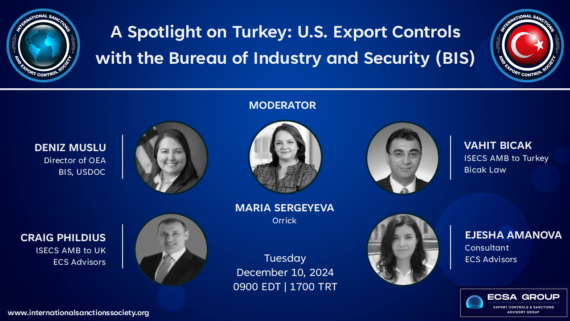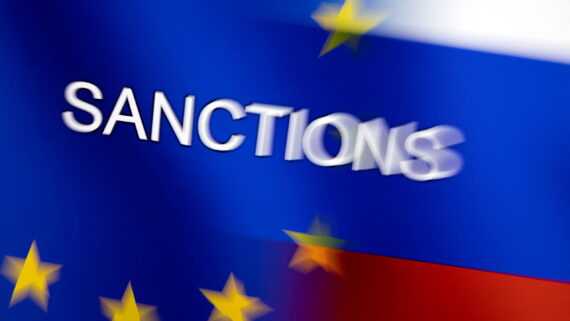Professor Dr. Vahit Bıçak, a highly respected expert in law and regulatory issues, gives us the scoop on his vision for the Türkiye chapter of ISECS. In this interview, we also discuss his career and how it impacts his plan moving forward for the Türkiye chapter. Professor Dr. Bıçak has a unique and deeply valuable perspective to share with us as someone that has worked expansively in the professional work environment in addition to his impressive academic standing.
ISECS Türkiye – Interview with Prof. Dr. Vahit Bıçak
Professor Dr. Vahit Bıçak, the ISECS Ambassador for Türkiye, a highly respected expert in law and regulatory issues, gives us the scoop on his vision for the Türkiye chapter of ISECS. In this interview, we also discuss his career and how it impacts his plan moving forward for the Türkiye chapter. Professor Dr. Bıçak has a unique and deeply valuable perspective to share with us as someone that has worked expansively in the professional work environment in addition to his impressive academic standing.
Q: You’ve had an extensive career spanning legal consulting, mediation, arbitration, and academia. How did your journey in law begin, and what led you to specialize in regulatory issues, among others?
A: My journey in law began with a strong desire to address complex societal and regulatory issues, using the law as a tool to both solve and prevent problems at various levels of society. Early in my career, I was drawn to regulatory issues because of their direct impact on public safety, economic integrity, and global compliance frameworks. My work evolved as I noticed that these areas required not only a deep understanding of domestic law but also an awareness of international standards, especially in fields like export controls, sanctions, and financial regulations.
Through experiences in consulting, mediation, and arbitration, I recognized the importance of clear regulatory frameworks and effective dispute resolution processes. Working in academia has complemented my practical experience, allowing me to contribute to the field by researching regulatory practices and educating others on emerging compliance issues. This blend of theory and practice has shaped my approach to law and reinforced my commitment to promoting legal standards that serve both industry and society.
Q: Türkiye occupies a unique geopolitical position. How do you see Türkiye’s legal framework evolving in terms of sanctions and export control regulations?
A: Türkiye’s legal framework in sanctions and export control is evolving rapidly due to its unique geopolitical position and increasing involvement in global trade and security alliances. Positioned between Europe and the Middle East and near several conflict zones, Türkiye plays a strategic role in international security, which influences its approach to export controls and sanctions.
Over the past few years, Türkiye has strengthened its regulatory infrastructure to align more closely with international standards, including those set by the United Nations, European Union, and other international bodies. This has led to a legal framework that is becoming more responsive to the global regulatory environment. For instance, Türkiye has enhanced its compliance mechanisms to prevent the transfer of dual-use goods, which can have both civilian and military applications. This is essential for aligning with export control regulations and reducing the risk of Türkiye being used as a conduit for controlled goods to restricted jurisdictions.
As global tensions evolve, Türkiye’s approach is likely to emphasize a balanced stance -remaining compliant with international sanctions while safeguarding its own economic interests. This balance is challenging but necessary, as Türkiye is deeply embedded in regional and international trade networks. Looking ahead, I see Türkiye further developing its regulatory bodies and expanding enforcement capabilities to ensure robust compliance, while also possibly advocating for reforms that accommodate its unique trade relationships and security priorities.
Q: How have international sanctions affected Turkish companies, and how they adapt?
A: International sanctions have impacted Turkish companies significantly, especially those with global trade and finance operations. These companies have faced challenges in securing access to international banking and financial services, as well as difficulties in exporting certain goods and technologies to sanctioned countries. Many Turkish firms operate in sectors that involve complex supply chains, such as manufacturing and energy, which are directly affected by restrictions on certain materials and technology transfers.
To adapt, Turkish companies have employed several strategies. First, they are increasingly investing in compliance programs to better understand and adhere to international sanctions laws. This includes the use of sanctions screening software and hiring compliance officers knowledgeable in sanctions law. Additionally, companies are diversifying their supply chains to minimize reliance on countries affected by sanctions and are exploring alternative markets for their exports to reduce the risk associated with potential sanctions violations.
Furthermore, Turkish companies are also seeking legal guidance to ensure compliance with international regulations, as sanctions violations can lead to hefty fines and damage to their international reputation. Some firms have pivoted toward localizing production and sourcing materials domestically to reduce exposure to international sanctions. In doing so, these companies not only protect their operations but also contribute to Türkiye’s economic resilience in the face of geopolitical pressures.
The resilience of Turkish businesses under sanctions demonstrates their adaptability, although compliance costs have certainly increased.
Q: How have sanctions and export control issues come into play in the arbitration and mediation cases you’ve handled, especially when dealing with Turkish entities or cross-border disputes involving Türkiye?
A: Sanctions and export control issues have increasingly influenced arbitration and mediation cases involving Turkish entities or cross-border disputes with ties to Türkiye. These matters often come into play when parties are negotiating or litigating contract terms in industries sensitive to international trade regulations, such as defense, technology, and energy. For example, disputes may arise over a party’s inability to fulfill a contract due to sanctions that restrict the export of specific materials or technologies. This has sometimes led to force majeure claims or defenses, with parties arguing that sanctions create an unforeseen and uncontrollable barrier to performance.
In arbitration, the enforcement of sanctions regulations can impact the enforceability of an arbitral award. Turkish entities involved in cross-border disputes may find themselves subject to additional scrutiny if one of the parties is based in a country subject to sanctions, leading to complications in the recognition and enforcement of arbitral awards in other jurisdictions. Additionally, the presence of sanctions can impact the choice of governing law and forum for arbitration, as parties may seek to avoid jurisdictions or laws where sanctions could pose challenges.
In mediation, sanctions and export controls can influence the scope of settlement agreements, as any resolutions must ensure compliance with relevant sanctions. Mediators and legal advisors play a key role in guiding parties through these issues, helping them structure settlements that comply with international regulations while satisfying both parties’ interests.
For Turkish businesses operating globally, the awareness and adaptation to these regulatory concerns are now central aspects of dispute resolution, as they aim to mitigate risks associated with international sanctions.
Q: Türkiye’s unique position presents both opportunities and challenges in the face of growing international sanctions and export control regulations. How do you see Türkiye Chapter at ISECS help navigating these developments? What vision do you have for the Chapter?
A: The ISECS Türkiye Chapter is well-positioned to support local and regional stakeholders in navigating the complexities of international sanctions and export control regulations. Given Türkiye’s strategic position at the crossroads of Europe, Asia, and the Middle East, Turkish companies and government agencies encounter unique challenges and opportunities that require nuanced approaches to compliance.
The Türkiye Chapter can help by offering expert-led workshops, compliance resources, and tailored guidance on how international sanctions might affect Turkish industries, from manufacturing to technology and energy. As an Ambassador, my vision is to foster a proactive and collaborative community within the Türkiye Chapter that connects Turkish businesses and legal experts with international regulatory insights. This means not only supporting compliance efforts but also empowering Turkish companies to leverage their unique positioning within the global trade ecosystem.
Through the Türkiye Chapter, we aim to raise awareness and understanding of sanctions risks, offering real-world case studies and solutions that apply specifically to the Turkish context. Additionally, we plan to collaborate with government institutions to enhance the clarity and accessibility of compliance requirements, thus creating a secure and thriving environment for Türkiye’s international trade relations.
Q: What are you most looking forward to in your new role as an Ambassador? Any particular events our members shall anticipate?
A: In my new role as Ambassador for the ISECS Türkiye Chapter, I’m particularly looking forward to facilitating knowledge exchange between international experts and Turkish stakeholders in the fields of sanctions, export controls, and international trade compliance. I’m excited to collaborate with both industry leaders and governmental agencies to help guide Turkish companies through the complexities of the regulatory landscape.
One of the key events I’m looking forward to is organizing educational seminars and workshops focused on the evolving nature of international sanctions and export controls, tailored specifically for Turkish businesses. These events will address both the legal and practical aspects of compliance, with a focus on strategic solutions. Additionally, we aim to host networking opportunities that connect local professionals with the broader global ISECS community, fostering mutual learning and collaboration.
Members can also expect the ISECS Türkiye Chapter to offer insights into the changing dynamics of international trade and provide tools to navigate any challenges that arise from sanctions or export controls. Overall, the vision is to create a dynamic and supportive environment where members can find the resources they need to stay ahead of regulatory changes and improve compliance efforts.
Interview completed by Ejesha Amanova
Edited and reviewed by Jordynn Tolento and Kelsey Wilcox
 English
English Türkçe
Türkçe Français
Français Deutsch
Deutsch






Comments
No comments yet.